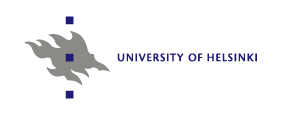
|
Constellations of Correspondence: Relational Study of Large and Small Networks of Epistolary Exchange
in the Grand Duchy of Finland (CoCo)
|

Project Overview
Constellations of Correspondence (CoCo) is a four year consortium research project ending in 2025.
The aim of bringing together this consortium of humanists and researchers in digital humanities (DH)
and computer science (CS) is to interrogate an unused treasure in the major Finnish cultural heritage institutions, namely the registered metadata of all letters, public and private, kept in the collections of archives, libraries, and museums, relating to the period of the Grand Duchy of Finland (1809–1917). This is the first project to explore this correspondence catalogue data in a systematic and comprehensive way and to enrich and analyse it to answer ambitious humanistic and computational research questions. The main end-results will be an open semantic portal for different user needs, with humanities-driven data analysis tools, and scholarly analyses of the data.
The CoCo project is follow-up research of our earlier international work From Reassembling the Republic of Letters to
"LetterSampo – Letters on the Semantic Web", a series of research collaborations with the University of Oxford, Stanford University, Huygens Institute and others in the Pan-European COST action "Reassembling the Republic of Letters 1500–1800", starting from 2014.
Letters – words written on paper, enclosed in an envelope and transported to the recipient – were everywhere in the 19th-century world. This ancient means of communication had become a more efficient form of interpersonal and inter-institutional contact, as transportation speeded up, and it permeated all layers of the society as literacy spread and societies on the path to modernization created both new needs and means for written communication. This permeability means that letters are among the most important research materials, when scholars study canonical persons and major historical events. However, enquiries based on quantitative analysis are absent both from the studies that use letters as sources and from the enquiries to epistolary cultures or letter-writing as a social practice. Instead of close-reading select published or unpublished letters our research questions cast a wider net: What kind of patterns of epistolary communication can we recognise in our integrated dataset with a combination of quantitative and qualitative methods? Who could write a letter to whom in the 19th-century estate society?
The project is greatly indebted to the experiences accumulated and methods developed in the COST Action Reassembling the Republic of Letters 1500–1800 (2014–18) which charted and analysed both the metadata and the content of letters that knit together premodern Europe, and other related projects such as Mapping the Republic of Letters (Stanford), Cultures of Knowledge (Oxford), and ePistolarium (HUYGENS ING, Netherlands). However, a more appropriate translation for the epistolary exchange studied in these projects would be the ʻrepublic of the learned’, as it connected a prosperous, meritocratic, and transnational elite. The dataset of the proposed project is temporally and geographically more restricted but, due to these delimitations, much more comprehensive regarding different social layers of 19th-century epistolary culture.
Objectives
The CoCo consortium project has two main objectives:
- To enhance the value and research potential of epistolary metadata provided by the key cultural heritage institutions. This is a rich material and, in many cases, already immediately available (names of senders and recipients, dates, often places). As an integrated and harmonised dataset this material can enable a whole series of new observations about the cultural, political, and economic networks in the long 19th century of Finnish history, counterbalancing the collection policies of individual cultural heritage (CH) institutions. The main outcome of the project will be a harmonised and openly published dataset of Finnish epistolary metadata, a web user portal for accessing the dataset (see research on LetterSampo portal), and humanities-driven open-source data analysis research tools for further study of the dataset. A further aim is to facilitate the collaboration between researchers and cultural heritage institutions on the topical issue of semi-automated and manual metadata production, including entity reconciliation (identities of persons, places, and letters).
- To create a new entry point for all Humanities researchers who make use of letters as their sources, and to study the social relations of the Grand Duchy with novel methods. The main premise of the proposed project is two-fold. Our point of departure is the assumption that the patterns of 19th-century correspondence can function as a proxy for a 19th-century social network. The letters do not reflect a “society” that hides behind them; rather, in their materiality, they are the society. In other words, we believe that although social connections cannot be reduced merely to letter-writing, the analysis of integrated epistolary metadata will highlight social structures as they unfold chronologically and geographically throughout the century.
The project started with a kick off event (in Finnish) on 17.9.2021. For more details about the CoCo project, see the CoCo homepage.
Portal and data service online
The LetterSampo Finland portal https://kirjesampo.fi and its
Linked Open Data service on the Linked Data Finland platform
were opened on May 27, 2025, at a special
publication event
in Helsinki, Finland. The data is available at the Zenodo.org service: https://zenodo.org/records/15210590.
How to refer LetterSampo Finland
At the moment the most comprehensive academic general reference to LetterSampo Finland is
E. Hyvönen. P. Leskinen, H. Poikkimäki et al.: LetterSampo Finland knowledge graph, data service, and semantic
portal for researching epistolary data of the Grand Duchy of Finland (1809-1917), 2025 (cf. below).
The other papers below can be used for reference to more focused and related topics.
Acknowledgements
Our research is funded by the Academy of Finland.
Contact Persons and Collaborators
- Prof. Eero Hyvönen, Aalto University. PI at Aalto University.
- Dr. Jouni Tuominen, University of Helsinki and Aalto University. PI at the University of Helsinki, Helsinki Centre for Digital Humanities (HELDIG).
- Dr. Ilona Pikkanen, the Finnish Literature Society (SKS). Project consortium leader and PI at the Finnish Literature Society.
The project advisory board includes Dr. Päivi Happonen (National Archives of Finland), Prof. dr. Charles van den Heuvel (Huygens ING), Dr. Anna Kuismin, Research prof. dr. Claire Lemercier (CSO, Sciences Po and CNRS, Paris), Dr. Johanna Lilja (National Library of Finland), and Associate prof. Dr. Dirk van Miert (University of Utrecht). Collaborators include Prof. Ruth Ahnert (Queen Mary University, London), Prof. Howard Hotson (University Oxford), and Assistant prof. Mikko Kivelä (Aalto University).
Publications of SeCo related to epistolary exchange
2025
Eero Hyvönen, Petri Leskinen, Henna Poikkimäki, Heikki Rantala, Jouni Tuominen, Senka Drobac, Ossi Koho, Ilona Pikkanen and Hanna-Leena Paloposki:
LetterSampo Finland (1809–1917) Data Service and Portal: Searching, Exploring, and Analyzing Historical Letters and Their Underlying Networks.
The Semantic Web: ESWC 2025 Satellite Events, Portoroz, Slovenia, June 1 - 5, 2025, Proceedings, Lecture Notes in Computer Science, vol. 15832, pp. 80-86, Springer-Verlag, 2025.
bib pdf link Eero Hyvönen, Annastiina Ahola, Petri Leskinen and Jouni Tuominen:
SampoSampo: A Portal for Studying Enriched Data and Semantic Connections on a Cultural Heritage Linked Open Data Cloud.
The Semantic Web: ESWC 2025 Satellite Events, Portoroz, Slovenia, June 1 - 5, 2025, Proceedings, Lecture Notes in Computer Science, vol. 15832, pp. 67-74, Springer-Verlag, 2025.
bib pdf link Eero Hyvönen, Petri Leskinen, Henna Poikkimäki, Heikki Rantala, Rafael Leal, Jouni Tuominen, Senka Drobac, Ossi Koho, Ilona Pikkanen and Hanna-Leena Paloposki:
Searching, exploring, and analyzing historical letters and the underlying networks: LetterSampo Finland – Finnish 19th-Century Letters on the Semantic Web.
Digital Humanities in Nordic and Baltic Countries 2025 (DHNB 2025), Post-proceedings, University of Oslo Library, Norway, September, 2025. Accepted, forth-coming.
bib pdf Eero Hyvönen, Petri Leskinen, Henna Poikkimäki, Heikki Rantala, Jouni Tuominen, Senka Drobac, Ossi Koho, Ilona Pikkanen and Hanna-Leena Paloposki:
Searching, exploring, and analyzing historical letters and the underlying networks: LetterSampo Finland (1809–1917) data service and semantic portal.
Digital Humanities in Nordic and Baltic Countries (DHNB 2025). Book of Abstracts, 2025. Long papers.
bib pdf link 2024
2023
Senka Drobac, Johanna Enqvist, Petri Leskinen, Muhammad Faiz Wahjoe, Heikki Rantala, Mikko Koho, Ilona Pikkanen, Iida Jauhiainen, Jouni Tuominen, Hanna-Leena Paloposki, Matti La Mela and Eero Hyvönen:
The Laborious Cleaning: Acquiring and Transforming 19th-Century Epistolary Metadata.
Digital Humanities in the Nordic and Baltic Countries Publication, DHNB2023 Conference Proceeding, vol. 5, no. 1, pp. 248-262, University of Oslo Library, Norway, 2023.
bib pdf link 2022
Bernardo S. Buarque, Aline Deicke, Malte Doehne, Martin Düring, Heiner Fangerau, Catherine Herfeld, Charles van den Heuvel, Eero Hyvönen, Roberto Lalli, Malte Vogl, Lea Weiß, Dirk Wintergrün:
White Paper of the ModelSEN Workshop (April 2022). October, 2022.
bib link Jouni Tuominen, Mikko Koho, Ilona Pikkanen, Senka Drobac, Johanna Enqvist, Eero Hyvönen, Matti La Mela, Petri Leskinen, Hanna-Leena Paloposki and Heikki Rantala:
Constellations of Correspondence: a Linked Data Service and Portal for Studying Large and Small Networks of Epistolary Exchange in the Grand Duchy of Finland.
DHNB 2022 The 6th Digital Humanities in Nordic and Baltic Countries Conference, pp. 415-423, CEUR Workshop Proceedings, Vol. 3232, March, 2022.
bib pdf link Esko Ikkala, Eero Hyvönen, Heikki Rantala and Mikko Koho:
Sampo-UI: A Full Stack JavaScript Framework for Developing Semantic Portal User Interfaces. Semantic Web – Interoperability, Usability, Applicability, vol. 13, no. 1, pp. 69-84, January, 2022. Online version published in 2021, print version in 2022.
bib pdf link 2021
2020
2019
Howard Hotson, Thomas Wallnig, Jouni Tuominen, Eetu Mäkelä, and Eero Hyvönen:
People.
Reassembling the Republic of Letters in the Digital Age (H. Hotson and T. Wallnig (eds.)), pp. 119-136, Göttingen University Press, 2019.
bib link Howard Hotson and Eero Hyvönen:
Topics.
Reassembling the Republic of Letters in the Digital Age (H. Hotson and T. Wallnig (eds.)), pp. 137-148, Göttingen University Press, 2019.
bib link Eero Hyvönen, Ruth Ahnert, Sebastian E. Ahnert, Jouni Tuominen, Eetu Mäkelä, Miranda Lewis and Gertjan Filarski:
Reconciling metadata.
Reassembling the Republic of Letters in the Digital Age (H. Hotson and T. Wallnig (eds.)), pp. 223-235, Göttingen University Press, 2019.
bib link 2018
Jouni Tuominen, Eero Hyvönen and Petri Leskinen:
Bio CRM: A Data Model for Representing Biographical Data for Prosopographical Research.
Proceedings of the Second Conference on Biographical Data in a Digital World 2017 (BD2017), vol. 2119, pp. 59-66, CEUR Workshop Proceedings, Linz, Austria, 2018.
bib pdf link Biographies make a promising application case of Linked Data: they can be used, e.g., as a basis for Digital Humanities research in prosopography and as a key data and linking resource in semantic Cultural Heritage (CH) portals. In both use cases, a semantic data model for harmonizing and interlinking heterogeneous data from different sources is needed. This paper presents such a data model, Bio CRM, with the following key ideas: 1) The model is a domain specific extension of CIDOC CRM, making it applicable to not only biographical data but to other CH data, too. 2) The model makes a distinction between enduring unary roles of actors, their enduring binary relationships, and perduing events, where the participants can take different roles modeled as a role concept hierarchy. 3) The model can be used as a basis for semantic data validation and enrichment by reasoning. 4) The enriched data conforming to Bio CRM is targeted to be used by SPARQL queries in a flexible ways using a hierarchy of roles in which participants can be involved in events.
Jouni Tuominen, Eetu Mäkelä, Eero Hyvönen, Arno Bosse, Miranda Lewis and Howard Hotson:
Reassembling the Republic of Letters - A Linked Data Approach.
Proceedings of the Digital Humanities in the Nordic Countries 3rd Conference (DHN 2018), pp. 76-88, CEUR Workshop Proceedings, vol. 2084, Helsinki, Finland, March, 2018.
bib pdf link Between 1500 and 1800, a revolution in postal communication allowed ordinary men and women to scatter letters across and beyond Europe. This exchange helped knit together what contemporaries called the respublica litteraria, Republic of Letters, a knowledge-based civil society, crucial to that era’s intellectual breakthroughs, and formative of many modern European values and institutions. To enable effective Digital Humanities research on the epistolary data distributed in different countries and collections, metadata about the letters have been aggregated, harmonised, and provided for the research community through the Early Modern Letters Online (EMLO) service. This paper discusses the idea and benefits of using Linked Data as a basis for the next digital framework of EMLO, and presents experiences of a first demonstrational implementation of such a system.
2017




